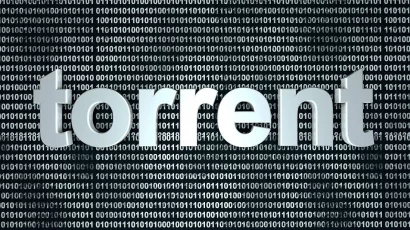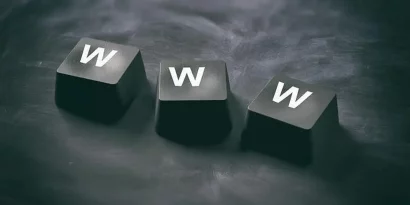You probably like downloading and sharing stuff online, don’t you? Which methods do you like using? Perhaps, you’re one amidst a plethora of folks who like BitTorrent.
Unfortunately, downloading torrents, as well as taking part in peer-to-peer file transfer, is usually considered an illegal activity. In fact, a lot of misconceptions surround the use of BitTorrent, which thus far has a bad reputation, making it a concern for many individuals.
Perhaps, you might be asking whether downloading torrents is illegal, or are torrent websites safe, or even whether you can be caught. Luckily, you’re not alone.
In principle, torrents are legal; however, downloading and sharing unsanctioned copyrighted stuff is illegal.
So, where is it exactly? It’s difficult to determine the legality of the shared files; therefore, most folks are left in the grey area.
Nevertheless, using a VPN has proved to be the best solution for safe torrenting as it will mask your identity and let you ‘do your thing’ without worrying about big brother.
But, still, there’s a lot to learn about torrent downloads, and this article is your key to understanding and answering all your questions concerning torrent websites. Let’s dive in.
How does torrenting work?
First thing first, you might be wondering how torrents work? If so, you will have the answer in this section, if not, you can skip to the next one.
The process of torrent downloads involves sharing tiny files called “Packages.” This procedure is split into 2 parts: the ‘Seed’ and ‘Leech.’
1) Leech
To put it in brief, the one who downloads a file without uploading any in return is a “Leecher.”
The leech term also refers to peers (or a peer) hurting the swarm because of a destitute share ratio; a leecher downloads much more than he uploads.
In simple words, the users that do not leave their torrent clients open (for seeding) after they are done with downloading files, are leechers.
Sharing is the essence of the torrent, as per the moral ethics of torrenting if you download something for free, you may also participate in the network in return.
Perhaps that is why the name ‘leech’ has been given to the people who do not participate.
2) Seed
As you download a torrent file and share the “Packages” that you downloaded simultaneously, you are a “Seeder.”
The real file gets moved in “packets” to further computers on the Peer-to-Peer network.
Seeders store the chunks of the large files and, once it is their turn, they share those chunks in the P2P network alternately.
Technically, you don’t download a torrent file from a single location but multiple locations.
In exchange, the software puts in place a connection allying you with other Leechers so that they can start downloading the packages that you have downloaded earlier.
So, in the case of seeders, when a user is done with downloading a torrent, he uploads tiny bits of the files whenever he is online for users downloading the same torrent.
That is why torrent download speed is dependent on the seeders, the higher the number of seeders, the faster one can download a file.
Torrent downloading process
While you download a torrent file (let it be a movie, software, wallpaper, etc.), the torrenting process works as follows:
- Tiny “packages” are downloaded which then constitute the torrent item’s parts in a Peer-to-Peer network.
- Then the torrent software begins to share these “packages” with other users who wish to download the same file, those users are called Leechers (as explained above).
- At this position, the outstanding “packages” are still being downloaded to finish the whole file.
- The procedure carries on until all of the packages needed to assemble the full file are downloaded.
Private vs. public trackers
A “tracker” is merely like a search engine which indexes files on the torrenting network, and they can be public or private. The private tracker requires an invitation, usually from an existing member.
Some of the public trackers include Kickass Torrents, ThePirateBay, and Demonoid. It means that anyone can get to the websites and then search without logging in or even asking for any authentication.
In the same note, anyone can upload files to be downloaded by others. The uploads are not moderated, meaning a user must decide whether a download is safe or accurate based on the comments as well as the reputation of the one who uploaded it.
On the other hand, private trackers are different as there is control as to who uploads or downloads within the group.
There’s a difference in content as well as quality, but most private tracker members attest to having quality files, longer retention, faster downloads as well as a more consistent and safe experience in general.
Unfortunately, whether a private or public tracker, the law is uniform – piracy is simply piracy, whether public or in a private group.
Torrenting legality and safety in a flash
Using torrents can indeed be both legal and illegal as it all depends on the case. So now, to the million-dollar question, what’s legal and what’s illegal here?
In a flash, when you don’t own an item and it is copyrighted, but you go ahead and download it through torrent sites for free, then that’s illegal.
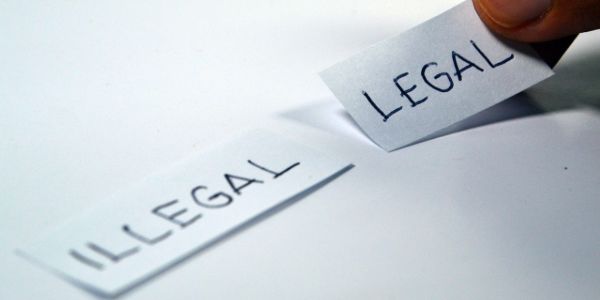
On the other hand, when you use a torrent client to download torrents in itself means that you’re downloading some stuff that’s not protected by copyright; hence that’s legal.
Therefore, it’s easy to say that the problem is not the act of torrenting, but what you torrent is rather what may land you in trouble.
Unfortunately, it’s often hard to guess the kind of content that’s legal to torrent and that which isn’t. Therefore, due to such difficulty, most countries have made using torrent websites illegal in any form.
For example, the USA is well known for its tough stance on torrents (to the point that they charge huge fines and jail time), while places like Spain and Poland allow people to download copyrighted content if it is for personal use only.
Besides, some countries have regulations regarding the copyrighted contents of torrents that are often overlooked by the establishment, such as Romania, Greece, and Brazil.
In a bit more further detail
You probably still have to ensure that the point has sunk whether BitTorrent is safe and legal.
After the demise of centralized services such as LimeWire and Napster, it was time for torrenting to take the wheel and lead. But again, even in the need, is it legal and safe?
BitTorrent and other torrent clients itself are not unsafe or illegal as the service exists legally for sharing any type of file.
However, using BitTorrent for copyrighted material is illegal and unsafe. Most trackers offer free access to copyrighted material as they operate in the legal grey area.
The argument behind most of those trackers is that they only find and organize the information already available without illegally hosting any copyrighted material on their servers (they’re just a means to an end).
However, distributors and the content creators are not convinced and have been criticizing major trackers for enabling as well as encouraging theft. Unfortunately, the blame has been shifted to the users – peers connected to a similar tracker.
There are two categories of peers; a leech – uses a magnet link or torrent file to download a file from another user on the network already having the file. The users that already have the file are known as seeds.
When a leech downloads a file or even part of the file, then they become seeds, which allow other leeches to download the file from their computers as well. Therefore, it’s a general rule of proper pirate etiquette to “seed as much as you leech.”
Interestingly, leeching and seeding the copyrighted material are two different criminal categories.
It is like purchasing illegal drugs for personal use, which is a minor crime, but selling drugs to others becomes a serious crime. Therefore, the trackers are merely a marketplace whereby all transactions go down.
Countries where torrenting is permitted
One thing is for sure, there are consequences for using torrents in countries where they are illegal.
The consequences vary in various countries, but they include (and are not limited to) fines as well as imprisonment.
Therefore, that is why you need the best information to understand the countries that allow torrent websites and those that don’t.
To help you get a vivid understanding of countries permitting BitTorrent use, here are some of them that allow downloading copyright material:
Countries that have allowed downloading (for personal use);
- Poland
- Spain
- Switzerland
Countries that overlook downloading content;
- Canada
- Netherlands
- Israel
- Mexico
- Egypt
- Brazil
- Slovakia Greece
- Uruguay
- India Romania
- Singapore
- Denmark
- Philippines
Countries where you’ll be fined for downloading illegal content;
- UK
- Japan
- Germany
- UAE
- France
- Finland
Countries that have entirely shut down torrent sites;
- Australia
- Malaysia
- Portugal
- Italy
- US
- China
- South Africa
- Latvia
- Russia
Notably, even if torrents are legal in some countries, still, you may be charged with poor privacy if you use torrents to access copyrighted material without proper online safety measures.
How to download torrents safely: Real-quick guide
It should be clear by now that if you’re caught using BitTorrent in a country where it’s illegal or even torrenting copyrighted material, then you’ll face the other side of the law.
Therefore, you must mask your face when you torrent.
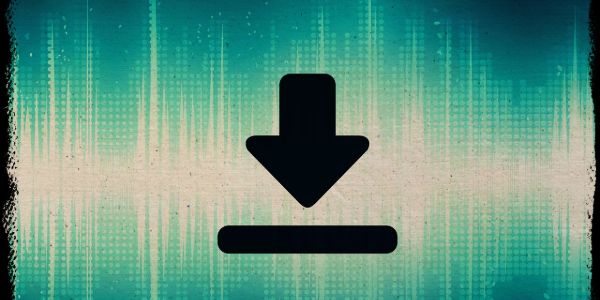
But how will you do it? Using a premium VPN is the route you should never ignore.
A quality VPN will help keep your torrent activities private as well as safe alongside encrypting your information online. To torrent safely with a VPN, you need to do the following;
- Download and then install a torrent-friendly VPN. We recommend going with ExpressVPN.
- After installation, enable the VPN’s kill switch (it is automatically on in ExpressVPN if you went with it).
- Connect to the VPN server of your choice.
- Once your connection is established, you can now open your torrent client and get your way to download torrents as usual.
- By so doing, your online activities will now be encrypted thanks to your VPN.
Here you might be wondering can a VPN fully protect me while using BitTorrent?
The brief answer is, yes, a Virtual Private Network (VPN) can shield all your online activities (including torrenting) from your ISP (Internet Service Provider) as well as hackers and authorities.
And that is a good thing for you, not only if you love downloading torrent files that are full of legality doubts, but also because it guards your internet privacy in general.
Read our in-depth guide on how to download torrents safely
Torrenting without VPN
As a rule of thumb, you should never even think about running BitTorrent without a VPN.
However, if still you ahead without a VPN, then the risks are as many as you can imagine.
Some consequences may not be connected to the authorities, but they uncertainly are a threat to your security online.
For instance;
ISP throttling
Most of the ISPs log and archive users’ activities.
One thing that happens when you are not using a VPN is that your ISP (internet service provider) can easily track all your online activities, including your torrenting activity.
Most ISPs contain a clause whereby they have a right of “throttling” your online speeds when you’re caught using BitTorrent or other torrent client.
Therefore, there’s every chance that you’ll be caught, especially if you use default ports for BitTorrent without a VPN. Your ISP will then slow down your internet speeds immensely, regardless of your internet tier plan you chose.
Client hijacking
Every month we have at least two or three movies in the cinema. Great and epic videogames come out every month. Dozens of books are launched every month that will fan our imagination.
With such novelty, it is normal for us to feel like hacking and downloading torrents with all this entertainment instead of paying for it. Now, hacking carries more risks than you think.
Torrenting without a VPN puts you at risk of being hijacked. In fact, every torrent client, at some point, has had “zero-day vulnerability.”
Although a VPN does not always guarantee safety against client hijacking, it adds some complexity to your network layer, which makes it difficult for malicious actors to take over your computer.
The constant threat of malware
While finding out if torrenting is safe, here we come to the infamous logical reason for never download torrents without proper protection: malware.
Malvertising, and specifically downloading torrents, is the easiest way one can get his PC infected with viruses.
It especially affects pirate gamers; in 2013, AVG reported that 90% of pirated games contain some type of malicious file.
Notably, not only gamers, all the torrent downloaders are prone to malware as even the most popular torrent sites such as TPB alongside the Pirate Bay alternatives like KickAssTorrents have been known to host malware in the past.
Data leakage risk
There is something worse than being infected with a virus and that is if a hacker steals your data or turns your computer into a zombie.
Sometimes torrent files do not hide malware but have scripts that enable their creators to monitor users’ activities and capture the personal data secretly.
Possible identity theft
Identity theft is on the rise, which spiked to 16.7 million victims worldwide in 2017.
However, the number came down 14.4 million in 2018 but that still is a huge number of victims to consider.
When uploading or sharing torrent files, you may be asked to reduce the protection of your computers, such as disabling the firewalls and antivirus software.
It is an obvious sign that the source is not reliable. By reducing your defenses, you run the risk of being a victim of hacking. Once inside your computer, hackers are free to do whatever they want.
That way, they can have access to passwords, accounts, and even stored credit card information.
Legal issues and fines
Even though I have listed it at the end of all the reasons, but this is one of the worst potential consequences of opting for torrenting without a VPN.
Since the major portion of digital media is protected by copyright, there are some serious risks in downloading torrents without protection online.
To give you an idea, the first step in a potential legal battle is to receive a DMCA notice. The following events can be a bit more complicated to digest including court trials and fines.
In some countries, those who are found guilty of copyright infringement can face penalties of up to five years in prison and hefty fines of up to $150k per file.
In 2010, a single mom from Minnesota was ordered from the federal jury to pay $1.5 million for violating the copyrights of 24 songs (a whopping $62,500 per song for sharing music online unlawfully).
Even though the woman is yet to pay the fines but the point to note is, you cannot afford to torrent without VPN because if you do so, your real identity will be exposed online and companies could track you down to take any possible action against you.
Can I get caught while torrenting?
Countries that have not allowed torrent services like BitTorrent suggest that you can be charged by the law, meaning there’re ways put in place to get hold of you.
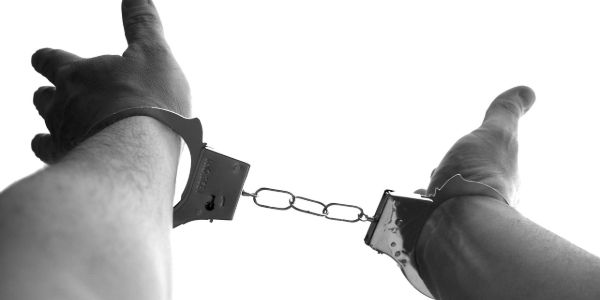
Copyright trolls, as well as government agents, have their eyes open around torrent networks as well as the popular sites that host torrent files.
They will then download and list the IP addresses they’ll find under the seeders and peers lists, which will eventually compromise your address.
In fact, a plethora of folks has fallen into the wrong hands of the law in various countries for torrenting. But still, you can secure yourself by ensuring that you don’t contribute at all to the torrent community.
So yes, you can get caught while torrenting and if it is illegal in your country, you may be charged with a fine or even prison sentence.
All you have to do is to disable seeding that will stop your PC from uploading the files to the torrent network. Now, as much as avid torrents may refer to that as being selfish, which they’re right, but you’re also taking cover.
Also, to avoid getting caught, you can opt to use a free proxy or, most importantly, a VPN as I have recommended doing in this article, whereby you’ll set the torrent client to connect via it to peers.
That way, you’ll become anonymous as a proxy, or VPN will route your connection via a different IP address.
Moreover, you can configure the onion routing network (Tor) as a proxy for your torrent client.
Unfortunately, Tor has recently become a target for illegal activity, although the network is still secure with little incidents of spy bodies that attack individual computers, making it not as anonymous as before.
What happens if you’re caught torrenting?
There’s no denying that the penalties for using torrent software like BitTorrent could be severe. While prosecution for torrenting has been high, the chances of paying a settlement or even going to court are merely low.
But get it right that you won’t have a free ride if you’re caught torrenting. You could be sued for a huge amount of money.
However, the consequences of downloading torrent files will depend on a particular country. Some countries have laws against downloading copyrighted content but are not enforced.
If you’re in a country whereby torrenting is actively prosecuted in civil courts, then you could face the following legal dangers;
Copyright trolls
This is simply a term that’s used in describing a team of unscrupulous lawyers targeting small-time torrent users.
They usually do it a simple way, whereby they simply “sit” in the swarms on torrents of the recently released or the highly profitable copyrighted material.
Then they log upload as well as download times, amounts together with the speeds of every IP address connected.
Public trackers, for instance, are virtually guaranteed to have the copyright troll present, and if you don’t use a VPN, then you could be swimming in hot water. They will then approach a copyright holder, sign a deal to let them take legal action.
In fact, mostly some specialists are even hired by Hollywood production directly to sniff the pirates out.
The copyright trolls will then reach out to you by email or to your door and hand out a settlement letter, which is not a legally binding document or injunction.
What copyright trolls use is intimidation, fear, and shame to ensure that you pay without even thinking about the court. Therefore, in case you receive such a letter or intimidation, you should not give in.
So, what will you do? It is better to never take your guard down.
Settlement letters
You should be aware that you’ll receive a legal threat not from a copyright troll but your ISP.
First, the copyright troll will discover your IP address, and since yet, they don’t know your name, they get to the court system and contact your ISP to send you a settlement letter.
Therefore, if your ISP contacts you, that more likely is because the copyright troll does not have your actual identity yet.
When the settlement letter does not have any identifying information, you’ll only have to take and keep it that way – just do nothing.
It means that your case will be dismissed before the ISP manages to find your identity.
Also, you should be aware that in case you respond to the letter, you could be revealing your identity that could give a copyright troll more power. They only play a probability game by sending a plethora of emails, and those who reveal their identity are targeted.
However, if things escalate, you should consider hiring a lawyer.
Possible actions by the ISP
Your ISP might decide to take action to ensure that you don’t download torrent files.
For instance, your ISP has the power of throttling your internet connection, while others might work with the copyright trolls by timely submitting your personal information.
But why do ISPs even care?
Torrenting takes a lot of bandwidth, which costs ISPs money. Also, ISPs could receive kickbacks from the content owners as well as their associates.
How can VPNs benefit for safe torrents
By now, you must have seen the many legal (as well as extra-legal) consequences of torrenting.
As much as the situation could seem dire, common-sense precautions have saved many torrent fans from the world of hurt.
Using the best torrent-friendly VPN has proved to be the best way to torrent while keeping safe. But how do VPNs benefit secure torrent downloads? It’s quite simple; a VPN does its work in two ways;
- It shields your IP address, whereby routing all your online activity via a server in another location and changing your IP address. It then creates an extra protection layer making it hard to track your online activity.
- Also, a VPN will encrypt all your data that’s is sent and received over the internet. Some providers even offer a split-tunnel that allows you to send only P2P traffic via the VPN provider.
When you’re connected to a VPN, your ISP will only be able to see that you’re connected to a particular IP address, and bandwidth is in use, but more than that, all data is garbled and useless to them.
How to pick the best torrenting VPN

BitTorrent could land you in trouble in some countries, and even if torrenting is legal in your region, there still might be some hidden dangers such as malware; and hence, bolstering your online security should be your priority.
Using a top-notch VPN for torrents is the best way to do it, but unfortunately, not all the VPNs (even if everyone advertises to be so) will provide you with the protection you need while BitTorrent.
Therefore, when choosing the best VPN for torrenting, your pick must have the following features;
- No-logging policy.
- Unlimited bandwidth.
- Military-grade encryption that uses AES 256-bit.
- Connections should be fast and consistent.
- It should have P2P-friendly servers dedicated to torrenting traffic.
A quality VPN offers more than merely providing you with protection while torrenting because it also boasts other advantages such as enabling you to avoid censorship while traveling abroad, bypass geo-blocking, escape data-throttling and assert your right to internet privacy to name a few.
Therefore, not only because of downloading torrents safely, if you’re a regular web user, you should make a top VPN like ExpressVPN your partner.
Torrent downloads and their future
It was during the 2000s that torrent downloads incidents spiked with several folks getting into the wrong side of the law.
Since then, torrenting has taken another route whereby the fight to do away with it is being tightened each day.
For instance, in 2011, the US started blocking torrent sites, and Canada is following suit.
There’s no denying that there’re global efforts to go down hard on piracy as well as the use of tools like BitTorrent that are associated with it. But still, little indicates that such efforts are indeed affecting at all. In fact, torrent programs such as BitTorrent are even more popular than ever.
So what’s the future of torrenting?
Your guess is as good as mine, given what a VPN can offer for torrents. However, BitTorrenting without a VPN is undoubtedly dangerous and rest-assured it more likely will keep getting menacing.
The good thing is, quality VPNs such as ExpressVPN can help you to mask your identity effectively that not even your ISP can be able to tell what you’re downloading.
Unfortunately, depending on your location, just like using BitTorrent can be illegal, a VPN can be considered equally unlawful or you might find it to be banned.
Some of the countries that oppose the use of VPNs include China, Belarus, Iraq, Oman, North Korea, UAE, and Russia.
Nevertheless, with several identities looking to put an end to torrenting forever, how long it will be around is something that only time will tell.
Be well-informed if you wish to go with torrents
You want to torrent, don’t you? That is all right.
Given the copyright trolls that could be watching, you simply need to be smart (and privacy-oriented) torrenter.
For example, you need to avoid the latest games, movies, and music as they could be the main target for copyright trolls as much as you also want them. Sometimes a little wait is better for you.
Also, you could transform to streamed content or install and use some software tools, such as Plex and Kodi, which are open-source software media centers.
They allow streaming as well as playing any kind of content on different devices. Moreover, they’re capable of streaming even copyrighted material.
Obviously, it would be better not to use torrents at all.
But if you want to continue torrenting, it’s important to protect your online privacy and stay under the radar of copyright officials.
For that, take care of the following:
Verify
The first thing you need to know when downloading torrent, securely, is to verify the security conditions of the site where you download torrent files.
When downloading torrent you should know that there are two categories of access: public and private.
And as the name implies, the public access pages allow the entry of any user, while you can access the private ones only if one of its members sends you an invitation.
Therefore, it is important to thoroughly review information related to any site you are accessing, specifically if there are reports related to your operating system, software security flaws, and, in general, data with interference from the downloads that are made on that website.
Hide your IP address
Another important security recommendation is to hide your IP address when downloading torrent using a VPN so that when you make these downloads your address should not be visible to other users, your ISP, or authorizes online.
Use the Tor Network
Let it be agencies, ISPs, or hackers, Tor keeps everyone at bay from tracking your internet connection down.
It encrypts your internet data via Tor relays multiple times, which creates multi-layer encryption — thereby, keeping your identity safe online.
Final thoughts
Although there are inherent risks for sharing and downloading files through P2P, it is still a very popular way to get your hands on the data you need. The risks, however, can be significantly reduced with some defensive actions and judgment.
Legal or illegal? Torrenting is legal, but using BitTorrent to download copyrighted material is very much illegal in most countries.
Also, you should not forget that your ISP, as well as copyright trolls, are watching your networks and could take action if they get hold of you while downloading copyrighted material.
Therefore, the best way to torrent safely is first to be a smart torrenter (use your common sense) and always use the best torrent-friendly VPN like ExpressVPN.
Also, you may always connect to a VPN server in a country where torrenting is deemed legal and allowed (such as Switzerland, Luxembourg, the Netherlands, or the Czech Republic).
Subsequently, on top of using a VPN, you should make sure that all your device security features, such as antivirus, antispyware, and operating systems are updated to their latest versions.
In the end, torrenting, be it legal or illegal at the end of it all, you’ll have to do it at your own risk.
Images via Pixabay.



